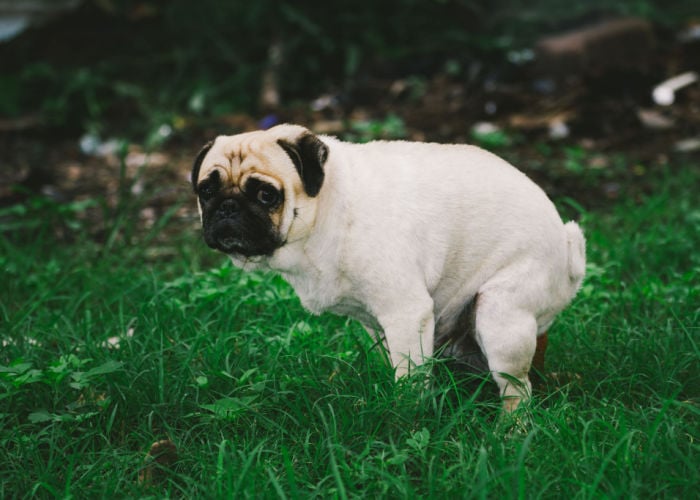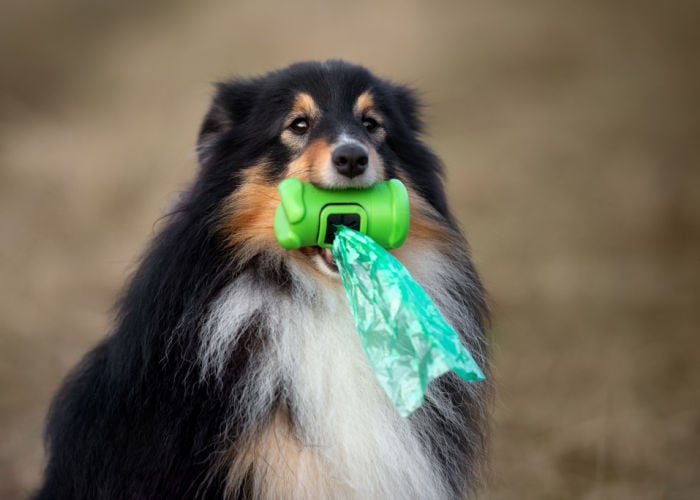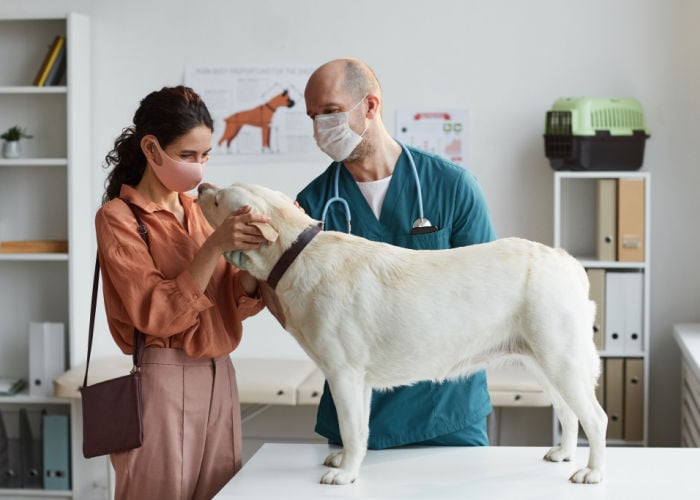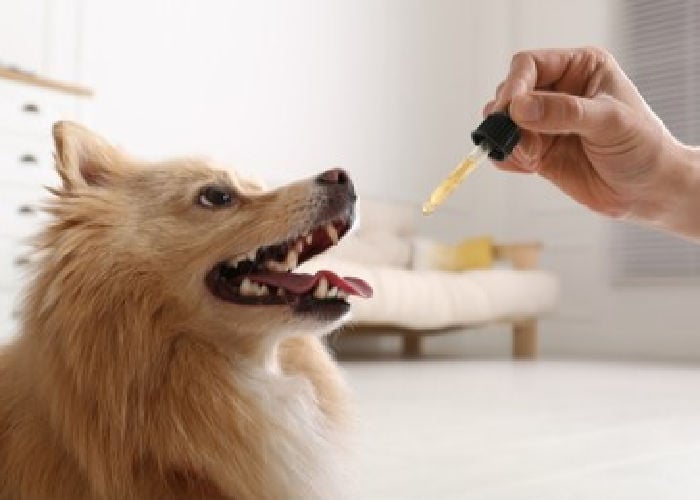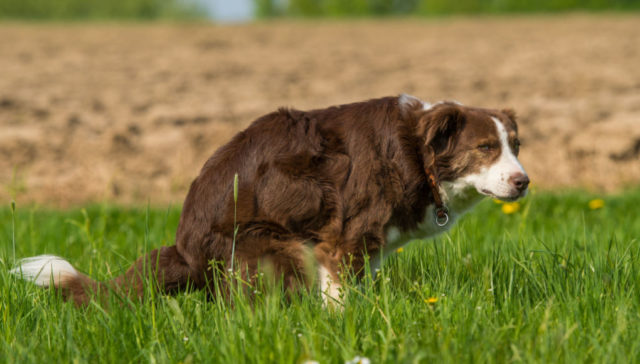
Table of Contents
What does black dog poop mean in canine physiology?
When it comes to our pup's health, experts say the proof is in the poop.
“Differences in food digestibility are also associated with differences in fecal characteristics.”
And according to a study, your dog's poop quality speaks volumes to food digestibility.
When dog food has high digestibility, your Fido's body absorbs most of the nutrients they need.
Indeed, with higher food digestibility comes firmer (and normal) poop quality.
So, seeing black dog poop in your backyard suddenly can be pretty alarming, especially when it isn't the norm for your dog.
And keeping an eye on your dog's stool is a good way to monitor its health.
After all, if the eye is the window to the soul, then poops are the window to the gastrointestinal health of the dogs.
It may not sound awe-inspiring, but you know it's important for us dog owners to understand this.
And taking note of the color isn't enough. You should also check for the shape and consistency as they could also tell a lot. (More on that later.)
In this article, let's take a look at the following vital things:
- What causes black dog poop
- Tarry stools meaning in dogs
- What could be the treatment for black stool in dogs
Let's get right into it, shall we?
RELATED: 15 Reasons for Blood in Dog’s Stool
Black Dog Poop: What To Look Out For?
Sure, it can be uncomfortable (and icky!) talking about dog stools.
But as dog owners, it's important we understand what's normal and what's not for our pooch.
Ideally, a normal and healthy dog stool is firm, log-shaped, easy to scoop, and dark brown or chocolate brown in color.
But normal is on a case-to-case basis.
Because depending on what your dog eats, black poop might mean okay.
That is, of course, if it's the typical output your dog makes during his daily potty breaks.
And also, consistency is as equally important as color.
Whether the stool is crumbly, hard, tarry, liquid, soft, or sticky…
Knowing this could help your vet determine how to proceed with your dog's possible condition if there is one.
Apart from the stool appearance, it's also important that we know our dog's typical potty habits — how frequently they go in a day.
If your dog usually has to go do his business once a day but is suddenly begging to be let out multiple times, then that could also be an indicator that something's not right.
RELEVANT: Oily Dog Poop: What Does It Mean
Other Signs To Look For
If your dog's black stool is accompanied by any other symptoms listed below, note them down as your vet would surely want to know these things upon consultation.
- Collapse
- Diarrhea
- Vomiting
- Lethargy
- Pale or white gums
- Weight loss and poor body condition
- A hunched posture possibly caused by abdominal pain or discomfort
- Petechia or the tiny, red-purple spots on the skin or gums which indicate a bleed under the surface
What Causes Black Dog Poop?
There are many factors that could affect a dog stool's appearance.
Black dog poop, in general, could be caused by the following reasons:
Internal Bleeding
Black poop, especially when tarry or sticky, can be caused by blood that's present in the digestive tract, particularly in the stomach or the small intestine.
This tar-like stool is called melena.
It means the body has already tried to digest the blood from the upper digestive tract, hence, the color.
Stomach ulcers and parasites like tapeworms or hookworms are among the common causes of internal bleeding, and they could be a serious cause for concern.
That's why if you see a black tarry stool from your dog, it's best to visit your veterinarian right away.
Diet
What your dog eats also plays a key role in what their stool would look like once digested and excreted.
Dogs who eat fresh and human-grade food, for example, produce stools that are smaller and less smelly.
This is because the body absorbs the food more effectively and the nutrients that come with it, as compared to other dog foods.
A study conducted by the University of Illinois supported this, concluding that fresh foods are linked to producing high-quality poops.
Having black poop, on the other hand, can be the result of feeding your dog a high percentage of meat (especially bloody raw ones), liver, and other offal.
Reaction to Medications and Supplements
Some medications and supplements that we give our dogs can also cause black dog poop, like iron supplements.
Spoiler alert, iron supplements treat iron-deficiency anemia so we can imagine that what's in it definitely has the same properties as the blood that can cause dark stools.
Sometimes, veterinarians also prescribe activated charcoal to be part of a dog's diet.
Activated charcoals counter any toxic substance that a dog has ingested, and obviously, it can color his stool black.
Toxin Ingestion
Sometimes, overly curious dogs unknowingly ingest toxic substances like rat poison.
Depending on the toxin, black tarry stool can also be a tell-tale sign of dog poisoning.
Immediate attention from the vet is very crucial in these cases to prevent fatal consequences.
RELATED: What You Need to Know About Poison Prevention for Dogs
Liver, Kidney, or Pancreas Diseases
In some cases, pancreatitis and inflammatory bowel diseases cause black dog poop.
And the same goes for any liver or kidney disease.
These health problems potentially cause intestinal bleeding, hence getting blood in the stool which, as we now know, can turn stools black.
Anemia
Apart from lethargy, weight loss, and labored breathing, signs of blood loss are also noticeable among dog patients with anemia.
This blood loss not only happens via nose bleeds, but also through blood in vomits, urine, and stools.
Blood loss that dogs experience through their digestive tract will also definitely cause black tarry stool.
Other Possible Causes of Black Dog Poop
- Tumor
- Trauma
- Blood clotting disorder
- Hemorrhagic gastroenteritis
- Metabolic diseases like Addison's disease
- Recovery from a gastrointestinal surgery
- Mother dogs recovering from delivery of pups
- Bleeding disorders like Von Willebrand's disease
While these are the common reasons associated with having a black stool in dogs, this shouldn't be enough information for anyone to self-treat their pet.
We strongly suggest immediately going to your veterinarian should there be anything unusual with your dog's overall demeanor and stool.
Checklist: What Should I Do If My Dog Has Black Poop?
We know it's easy to panic when you see something wrong with your precious pooch.
But panic is the last thing that you and your dog need at this time.
Make sure you got everything down on this list upon seeing that your dog is pooping black.
- Note the color, shape, and consistency of your dog's stool.
- Take a picture of your dog's poop. If possible, save a sample in a poop bag. Make sure that the sample is fresh to show to your vet. Stools that have been sitting for quite a while, especially under the sun, can really turn their color to black.
- List down the food, medicine, or supplements your dog took for the past 24 hours.
- Monitor your dog. Wait for him to go again. Record the time and the frequency of his poop.
- Observe other symptoms. If there are vomiting, lethargy, pale gums, and other alarming signs, bring him immediately to your veterinarian or the emergency veterinary hospital.
Diagnosing Black Dog Poop
Because a black-colored poop usually indicates blood in the stool caused by bleeding in any part of the body, timely diagnosis and proper treatment are very important.
The checklist you've made is surely going to be helpful for the vet to know where to begin.
A full clinical examination is going to be required to assess the general health of your dog.
This included routine blood work, x-rays, abdominal ultrasound, fecal and urine testing, and other tests.
Endoscopy might also be performed to take a peek inside your dog's body.
In some cases, depending on the severity of your dog's condition, the vet may require your dog to be confined in the hospital for IV fluid therapy, extensive diagnosis, rest, and 24-hour observation.
Treatment for Black Dog Poop
Because the black tarry poop of dogs is a symptom and not an illness in itself, the treatment will depend on what the vet will diagnose as the cause.
Medications will definitely be prescribed along with other possible hospital treatments to treat any bacteria or infection.
If there has been significant blood loss in case of one, a blood transfusion will likely be administered.
If the vet was able to find the cause of melena immediately, you might be able to take your pooch home right away.
But not without any medications to bring with you, for sure.
Just make sure that you follow the prescribed medication to the T, and finish the medicines according to the prescription even if your dog seems fine already.
It's also important to do follow-up check-ups with the vet to properly monitor your dog's health progress.
WATCH: Dog Poop Color Chart: What It All Means
FAQs on Black Dog Poop
Should I be worried if my dog's poop is black?
If black poop is normal and usual for your dog, then there should be nothing to worry about.
Foods, medicines, and supplements our dogs are taking can cause their stools to darken and appear black, after all.
However, apart from being black, if you notice an unusual odor, consistency, and frequency, you may want to take note of the details, as well as a picture or an actual sample, if possible.
If the consistency is sticky and tar-like, it's best to consult with the vet immediately as this is commonly caused by digested blood.
How can I treat my dog's black stool at home?
If your dog has black poop but is still acting normal (a.k.a. no vomiting, healthy-looking gums, etc.), you can reverse his stool appearance by feeding him bland yet high-quality, human-grade food.
The perfect example of this would be rice and plain boiled chicken.
A change in vitamins or supplements may also help, as well as having him drink electrolytes for pets like Pedialyte.
However, any changes to his diet or medications should be communicated and approved by your veterinarian.
Also, if there are other worrying symptoms accompanying the black dog poop, consult with the vet right away.
Black Dog Poop: Before You Go…
Just remember, if you see a black dog poop, try to not panic just yet.
Keep a close eye on your pup and record every detail you observe.
Remember that there are many causes of black dog poop, especially black tarry stool in dogs.
It in itself is not the disease but only an indicator that something's wrong.
Consulting with the vet will help pinpoint the exact cause and the appropriate treatment for your dog's black stool.
Don't worry fur parent, you and your dog got this!


